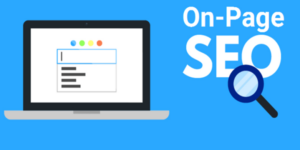In the realm of digital marketing, On-Page SEO stands as a cornerstone for website visibility and performance. It’s not just about crafting compelling content; it’s about optimizing it for search engines to ensure it reaches the right audience. This blog post is a comprehensive guide on mastering On-Page SEO techniques to enhance your content’s reach and impact.

Understanding On-Page SEO
On-page SEO revolves around enhancing components within your web pages, elevating search engine rankings, and drawing organic traffic. This encompasses refining content, meta tags, headings, images, and URLs. The primary objective is to increase accessibility, relevance, and appeal to users and search engines alike, particularly in the context of casino sites.
The Foundation of On-Page SEO
Keywords are the foundation of On-Page SEO. They are the words and phrases users type into search engines to find relevant information. Properly integrating keywords into your content, headings, and meta descriptions signals the search engines about the topic of your page, helping it rank appropriately in search results. Extensive keyword research ensures you’re targeting the right keywords for your audience.
Crafting Exceptional Meta Tags
Meta tags, including meta title and meta description, play a vital role in On-Page SEO. A compelling meta title with the targeted keyword and a concise, descriptive meta description can significantly impact your click-through rates. It’s the first impression your potential visitors have, and a well-crafted meta tag can make your page stand out in the crowded search results.
Optimizing Headers for Enhanced Readability and SEO
Headers (H1, H2, H3, etc.) organize your content, making it easily digestible for readers. From an SEO perspective, search engines use headers to understand the structure and topic hierarchy of your content. Ensure your main keyword appears in at least one header, preferably the H1 tag. This not only aids in On-Page SEO but also enhances the readability and user experience of your content.
Create Valuable and Relevant Content
Content quality is paramount in On-Page SEO. Creating valuable, relevant, and engaging content is essential for attracting and retaining visitors. High-quality content is more likely to be shared, linked to, and referenced by other websites, all of which boost your search engine rankings. Incorporate multimedia elements, statistics, and authoritative references to enrich your content and enhance its credibility.
Optimize Images
Images not only make your content visually appealing but also influence your SEO efforts. Optimize images by compressing them to reduce page load time and adding descriptive file names and alt tags. Descriptive alt tags not only assist visually impaired users but also provide search engines context about the image, improving overall accessibility and SEO.
Create Readable and Relevant Links
URLs should be clean, concise, and easy to read. A user-friendly URL that incorporates the target keyword helps both users and search engines understand the page’s content. Avoid using symbols, numbers, or generic URLs. Instead, opt for short, descriptive URLs that align with your content’s topic.
Insert Internal and External Linking
Internal linking involves linking to other pages within your website, offering readers more valuable content and keeping them engaged longer. External links, on the other hand, point to authoritative and relevant external sources, showcasing your content’s credibility. Proper use of both internal and external linking not only enhances user experience but also boosts your SEO.
Page Speed Optimization
Page speed significantly impacts user satisfaction and SEO. A slow website can deter visitors and lead to higher bounce rates. Optimize your images, reduce unnecessary code, leverage browser caching, and utilize Content Delivery Networks (CDNs) to ensure your pages load swiftly. A faster website improves user experience and positively influences your search engine rankings.
Conclusion
On-page SEO is an ongoing journey that requires meticulous attention to detail and continuous adaptation to evolving search engine algorithms. By understanding and implementing these On-Page SEO techniques, you’re laying the foundation for a successful digital presence. Remember, it’s not just about impressing search engines; it’s about creating a seamless, valuable experience for your audience.

